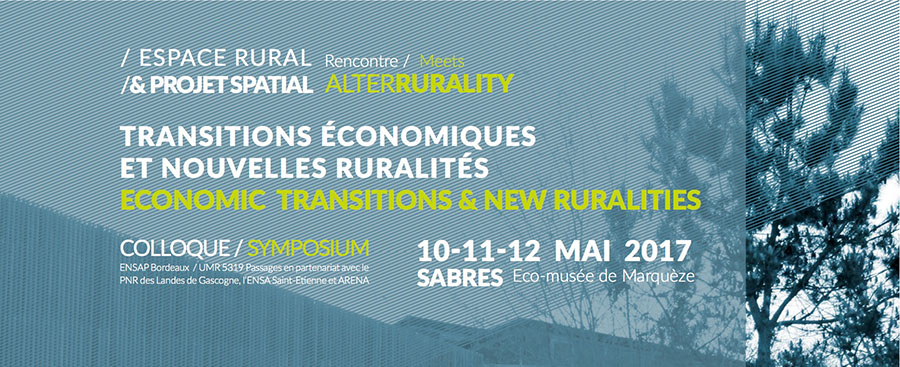|
Symposium program is online !Rationale of the symposium The purpose of this symposium is to examine the issues of economic transition in the transformation of rural areas through a multi-scale approach: from architecture to the territory. Nowadays, planning theory and practice (space design and planning) is generally dominated by neoliberal economic thinking, by the concept of growth as the unique answer to improve our environment and quality of life. In this context, the populations of developed countries have organized their life and their settlements with economic rules promoting consumption and overproduction logics. This approach of planning is in total contradiction to the global natural cycles. It has produced the global scale ecological problems we are currently facing, such as loss of biodiversity, global warming, decrease of resources, agricultural and food crises, etc. Despite the multiple "alerts" launched since the 1970s, particularly after the works of the Club of Rome and the Meadows report (“The Limits to Growth”), this logic of growth was never really impeded and questioned. On the contrary, it found a kind of political legitimacy, even ecological virtue, with the promotion of the concept of sustainable development. However, the reality of neoliberal process is that it is a system which runs against the reality of the physical and geographical resources of our planet’s resources. As the economist and member of Attac, Geneviève Azam points out (2010 + p. 11), it is urgent for our society to engage in a transition towards a world which is more sober […] which restores a capacity to act, to have a hold on life, a feeling of belonging in a common world and linked with the Earth ".
Networks The networks ARENA and AlterRurality ARENA is a European architectural research network. Its aim is to promote, develop and disseminate high-quality research in all fields of architecture in the widest sense, in its practical and theoretical dimensions. Its AlterRurality network questions rurality understood as a body of economic, ecologic, socio-cultural and ethical values. Its hypothesis is that an exploration of these values in a contemporary context contributes to the construct of a sustainable post-urban human habitat. The first event took place in Switzerland in 2012 and has led to a set of aphorisms seen as a framework for the understanding of a new rurality. The second meeting “re-imagining rurality”, took place in London, in 2014. The third event, “futures, opportunities, challenges”, was organised in Spring 2016 in Letterfrack, Ireland. Bordeaux will be the 4th network event. Follow-ups will take place in London and Reading (Summer and Fall 2017), and in Belgrade (Spring 2018).
The network "Rural space & spatial design” Founded in 2009, from the meeting of several practitioners and academics in the field of architectural design, landscape design and urban planning, the academic network “Espace rural et projet spatial” (Rural space & spatial design) organizes an annual meeting whose objectives are to confront pedagogical approaches, professional practices, and research strategies. After the initial three conferences held in 2009, 2010 and 2011 at the National School of Architecture of Saint Etienne, which determined the working principles of the network and the establishment of an inventory of the research issues common to its members, a series of thematic conferences was engaged, at the National Schools of Architecture of Nancy (2012), Clermont-Ferrand (2013), Rouen (2014), Grenoble (2015), to deepen the working hypotheses raised in these initial conferences. Since January 2015, the Rural Space & Design academic network has been approved as a Réseau scientifique et thématique (Scientific and thematic network) by the Architectural, Urban and Landscape Research Bureau (BRAUP). |


